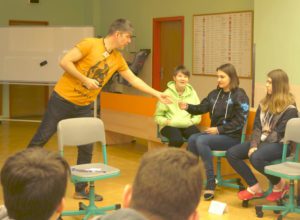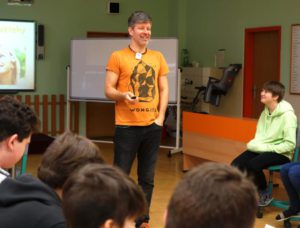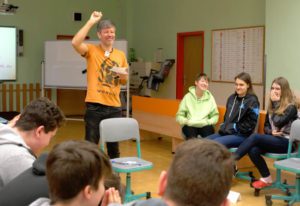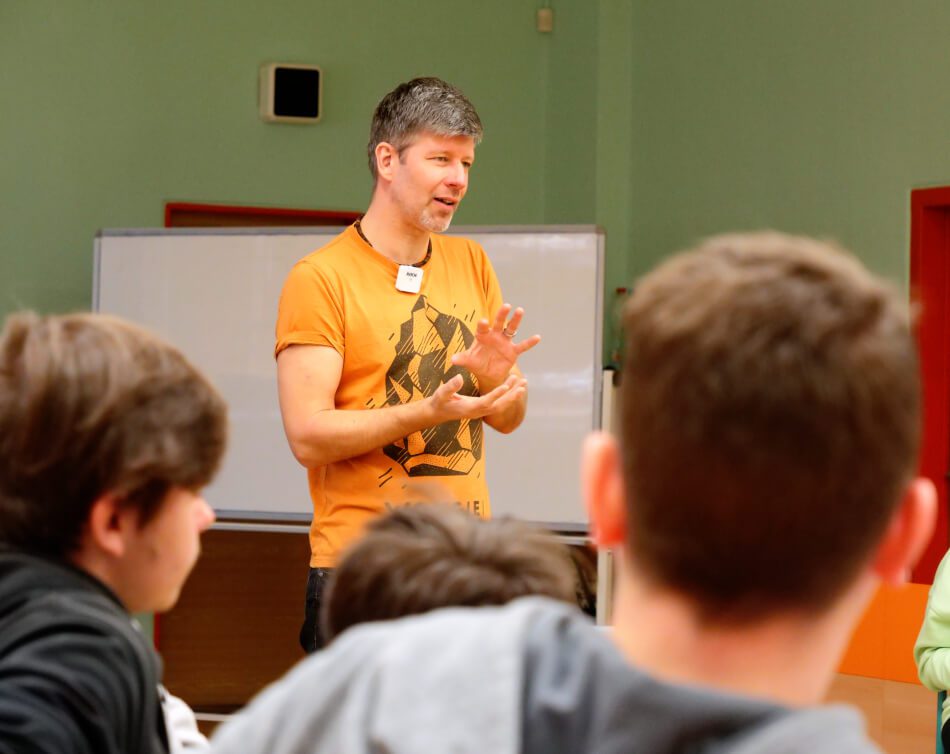Facts are facts, but stories reach out and touch children’s hearts. Sometimes, under their power, you even forget where you are…

During the program, children can write down questions to which they are looking for answers. Everything is anonymous and secure.
The subtitle of our report may sound a bit mysterious. The Healthy Youth Worker Michal Malina gives us the key to understanding one morning in March. Thanks to the programs he has been doing for schools for over twenty years, he has gained a lot of experience and a significant dose of natural wisdom.
When Michal told me before the program for the eighth-graders of the elementary school that we were in a local “famous” housing estate, where perhaps no one really wants to live, and that this was illustrated by the local school (where only a few teachers really want to teach), I expected problems and an uneasy course of the agreed programs.

Michal tells personal stories to children. Facts are important, but sharing personal experiences is priceless.
During them, however, it happened to me that I completely forgot about the introductory warnings and only remembered them long after the program. The truth is that it was necessary to set clear rules at the beginning of each program and then be purposeful about following them.
Michal then opened the topic “Sex, feelings and relationships” with the teens, mostly in stories. Many otherwise troubled students just listened thoughtfully and occasionally answered something or asked a question.
Two girls interested me. At first, they seemed like “adolescent cries for attention”, who were totally uninterested in anything. Suddenly they were peering in surprise at their classmates. The boys don’t give the teachers a break in regular classes, but now they listen breathlessly to the HY Worker’s stories and personal experiences.

One rule is that only one person speaks at a time. Silence can be achieved by the raised fist rule, that is, whoever raises his fist does not even beep.
In short, there was a palpable sense that the key to getting the attention of troubled teens is to set up clear rules of engagement and to approach youth in a way that makes them feel accepted.
I can vividly imagine that the pupils of the local school do not often experience this feeling either at home or at school.
If a HW Worker then comes in and lets them experience their own worth and importance, it can’t make up for all the trauma and deprivation, but it will at least give them hope. And they may begin to ask: “Who is this person?” “Can we come to the club and meet him again?” “Will we feel as good and comfortable there?”
How many of them then manage to come to some fundamental life change, is up to them.
Martin Stavjanik, the Authorised Supervisor of the HY Program workers





